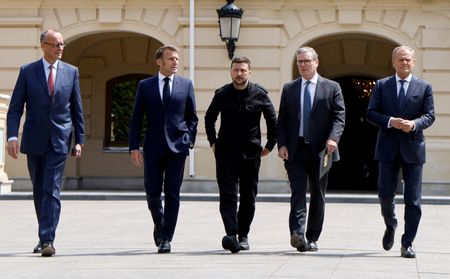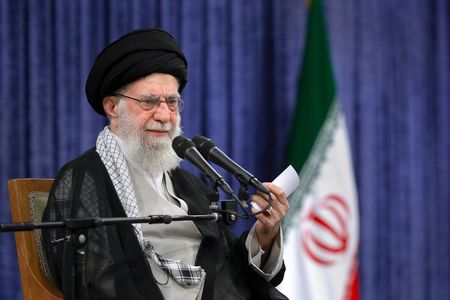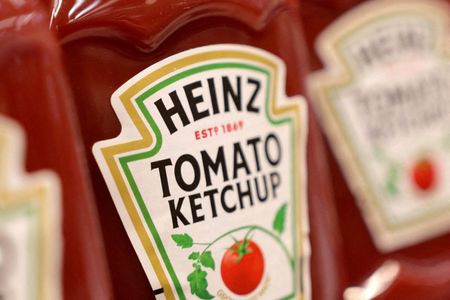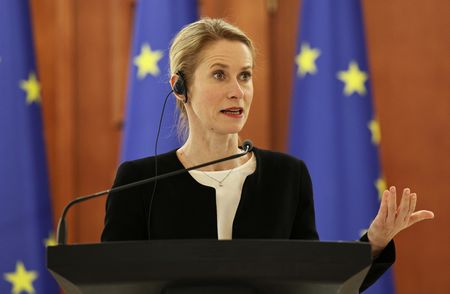(Refiles to amend client identifier slug)
By Julia Payne
BRUSSELS (Reuters) -The EU adopted four sets of sanctions against Russia over the war in Ukraine on Tuesday, including a 17th package targeting Moscow’s shadow fleet, and measures related to chemical weapons, human rights and hybrid threats, the European Commission said on Tuesday.
The EU and its Western allies have been progressively cracking down on Russia’s shadow fleet of tankers and related actors, which work to circumvent the Group of Seven nations (G7) price cap on Russian crude in place since late 2022.
The cap was designed to allow Russian oil to be sold to third countries using Western insurance services provided the price was no more than $60 a barrel.
However, the crackdown has started to bite and the EU will push for a lower price cap this week during a meeting of G7 finance ministers in Canada. Oil and gas exports are one of Russia’s main sources of revenue, which finance its war in Ukraine.
The four new sets of measures will hit over 130 entities and individuals. As part of the 17th package, the EU will list 75 new entities including major Russian oil firm Surgutneftegaz, a shipping insurance company and four shadow fleet management firms involved in the UAE, Turkey and Hong Kong, EU sources said.
EU diplomats briefly weighed imposing sanctions on the Dubai branch of Litasco, the trading arm of Russia’s No. 2 oil producer Lukoil, but it was deleted from the list owing to Hungarian opposition and a weak legal basis, EU sources said. However, they did list Litasco’s Dubai shipping arm Eiger Shipping DMCC.
Another 189 vessels, of which 183 are oil tankers, have been added to the list, taking the total number of listed vessels to 324.
The EU has been in dialogue with countries that provide tanker registrations in an effort to cut off Moscow’s use of so-called flags of convenience, referring to those registered to countries other than their actual owner.
In the latest round, the flags used included African countries such as Sierra Leone, Gabon and Comoros, Caribbean and Pacific islands, India, Azerbaijan and the landlocked European state of San Marino, the sources added.
The package also tightens measures around the sale of dual-use items, which are products or technology that can be repurposed by Russia’s military, and lists entities which support Russia’s military industrial complex in China, Belarus and Israel.
(Reporting by Julia Payne, Editing by William Maclean)











